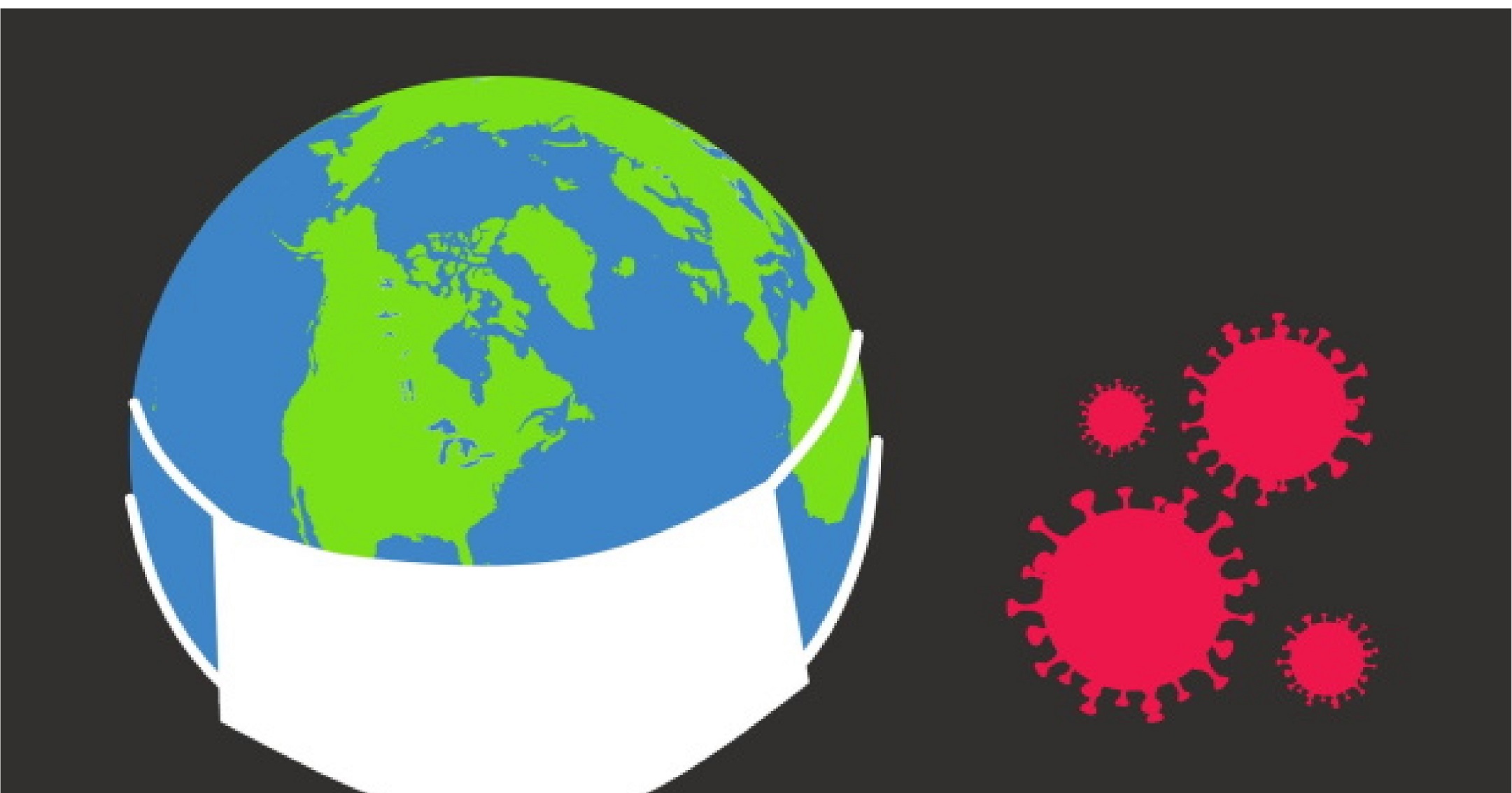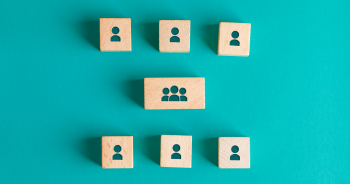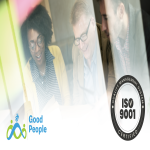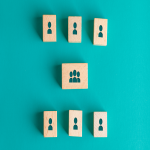We are aware of the crisis currently affecting Ireland and the rest of the world. As healthcare professionals, you are on the frontline working with the vulnerable populations that have been identified – e.g. older people 60+; people with pre-existing conditions (heart disease, lung disease, diabetes, cancer or high blood pressure), and those with weak immune systems. As the State health authorities continue to monitor the situation and direct the general public on a course of action, we have laid out the following guidelines in accordance to state mandates, recommended practice, and for the health and safety of our good people.
We will continue to update all Goodpeople personnel as further information from the HSE becomes available.
This guidance applies to all healthcare settings including primary, secondary, tertiary care and ambulance service.
Further information on all the guidelines below can be accessed on the Health Services Executive website.
Basics on the Coronavirus (COVID-19)
COVID19 is considered a novel virus not previously seen in humans. It was first identified in December and since then has spread across the globe. It is from the same large family of viruses (coronaviruses) that caused Severe Acute Respiratory Syndrome (SARS) and the Middle East Respiratory Syndrome Coronavirus (MERS).
- Incubation (without symptoms) may be as long as 14 days*
- Duration of illness is dependent on the severity of illness
- Patients with co-morbidities tend to have a longer and more severe illness
Identified Symptoms of COVID19 in order of occurrence include:
- Fever
- Cough
- Shortness of breath
- Muscle ache
- Acute confusion
- Headache
- Sore throat
- Runny nose – rhinorrhoea
- Chest pain
- Diarrhoea
- Nausea and vomiting
Based on the first 99 reported cases, radiological changes such as bilateral pneumonia and multiple mottling and ground-glass opacity may also occur. as well as pneumothorax; and acute respiratory distress is also possible.
What are Classified as Severe Cases?
‘Severe’ disease classified as:
- Shortness of breath
- Respiratory rate more than 30 bpm
- Hypoxemia
- Chest X-ray with multi-lobar infiltrates or pulmonary infiltration progressed more than 50% within 24 - 48 hours
HOW IT SPREADS:
COVID-19 spreads from person to person, usually due to direct contact (body fluids e.g. droplets from coughing or sneezing) with a person already infected with the virus. Or indirectly through contact with contaminated surfaces. It is still not known how long COVID-19 virus survives on surfaces, although current information suggests the virus may survive a few hours. Simple household disinfectants can kill the virus.
People may be infectious with no symptoms
How to Stop the Spreading:
These guidelines are especially important in your line of work.
Use proper hand hygiene
- Wash your hands frequently with soap and water or use an alcohol-based hand rub if your hands are not visibly dirty.
Practice respiratory etiquette
- When coughing and sneezing, cover your mouth and nose with flexed elbow or tissue – discard tissue immediately into a closed bin and clean your hands with alcohol-based hand rub or soap and water.
Maintain social distancing
- Leave at least 1 metre (3 feet) distance between yourself and other people, particularly those who are coughing, sneezing and have a fever.
Avoid touching your eyes, nose and mouth
- When you touch your eyes, nose or mouth with contaminated hands, you can transfer the virus from the surface to yourself.
Guidelines Specific to Healthcare Personnel:
Pay attention to your own risk levels and conduct regular risk self-assessments. The HSE has provided this chart for healthcare personnel risk assessment.
Take some time to familiarize yourself with HSE Recommendations And Guidelines for Healthcare personnel.
USE OF PERSONAL PROTECTIVE EQUIPMENT (PPE).
Most healthcare facilities have already instituted protective measures that may include the appropriate use of PPE as a last line of defence. Practice and maintain the recommended hierarchy of measures in every facility you attend. The hierarchy ranks controls according to their reliability and effectiveness and includes engineering controls, administrative controls, and ends with personal protective equipment (PPE). In the context of the risk of respiratory infection, PPE adds an extra layer of protection. But PPE does not cancel or remove the need to pay scrupulous attention to hand hygiene, respiratory hygiene and cough etiquette, and environmental hygiene.
The requirement for PPE is based on the anticipated activities that are likely to be required.
The unnecessary use of PPE will deplete stocks and increases the risk that essential PPE will not be available for you and your colleagues when needed. This guidance DOES NOT RECOMMEND the use of surgical facemasks in situations other than for contact with patients with droplet transmitted infection including COVID-19.
Masks should only be worn in the following circumstances:
- Worn by people who have respiratory symptoms of viral infection ( for example cough, sneeze, nasal discharge)
- Worn by relatives/household members or caregivers of people in close contact with those who have suspected or confirmed COVID-19 infection
- Worn by healthcare workers who are likely to spend more than a few minutes within 1 m of the distance of people with suspected or confirmed respiratory virus infection (including infection with COVID-19)
- Worn by healthcare workers who due to the nature of their work and the likelihood of exposure to secretions routinely wear surgical face masks, for example, Dentists.
As a healthcare professional, you must follow these guidelines in every facility or healthcare setting, including group homes, patients’ homes, and care homes:
- Ensure you are aware and have understood the protocols in the unit or facility in which you will be working.
- Implement the recommended and standard precautions for infection prevention and control with all patients at all times.
- Appropriately (and where possible) maintain a physical distance of at least 1 metre (3 feet) but ideally 2 from individuals with respiratory symptoms.
- Clean your hands regularly as per WHO 5 moments for hand hygiene
- before touching a patient,
- before clean/aseptic procedures,
- after body fluid exposure/risk,
- after touching a patient, and.
- after touching patient surroundings.
- Avoid touching your face.
- Promote respiratory hygiene and cough etiquette, which involves covering mouth and nose with a tissue when coughing and sneezing.
- Pay attention to visual alerts including signs, posters at the entrance to the facility and in strategic places (e.g. waiting areas, elevators, cafeterias) and follow the instructions provided.
- Educate patients on how to use tissues to cover nose and mouth when coughing or sneezing, to dispose of tissues and contaminated items in waste bins, and how and when to perform hand hygiene.
- Clean surfaces, especially the most frequently touched surfaces, with any cleaning product, then disinfect with a disinfectant.
- Dispose of household waste as you normally would. Used tissues can be disposed of in your normal household bin.
- Do not remove or ignore physical barriers that have been put in place to limit close contact with potentially infectious patients.
IF YOU HAVE CORONAVIRUS SYMPTOMS:
- do not go to a GP, pharmacy or hospital
- Contact Goodpeople to let us know in case we need to contact the facilities in which you worked up to 14 days prior to your symptoms.
- testing for coronavirus is not needed if you’re staying at home.
We understand that you may feel compelled to work for economic reasons, however, if you or someone in your family might have COVID19, DO NOT GO TO WORK.
Follow these guidelines instead:
- If you live alone, stay at home for 7 days from when your symptoms started.
- If you live with others and you are the first in the household to have symptoms of coronavirus, then you must stay at home for 7days, but all other household members who remain well must stay at home and not leave the house for 14 days. The 14-day period starts from the day when the first person in the house became ill.
- Anyone else in the household who starts displaying symptoms needs to stay at home for 7 days from when the symptoms appeared, regardless of the original 14 day isolation period.
- If you feel you cannot cope with your symptoms at home, or your condition gets worse, or your symptoms do not get better after 7 days, contact your GP.
The HSE has supports in place – Occupational Health - for healthcare professionals exposed to COVID19. That is why it is imperative that you keep Goodpeople informed of your status. If you have any questions or concerns contact us and/or Public Health for advice. Occupational Health should be updated on the outcome of this and the requirement for any monitoring/exclusion from work.
Occupational Health will be available to discuss fitness for work concerns with individual healthcare professionals, with the required consent of service management.
You should not work with Coronavirus patients if the following apply to you:
- If it is not been possible to identify and provide appropriately fitting PPE.
- If you are pregnant or immunocompromised secondary to illness or treatment.
- If you travelled to an area with presumed on-going community transmission of COVID-19 in the previous 14 days.
IMPORTANT CONTACT NUMBERS:
Goodpeople: Gerard 087 459 0738
Public Health: Available every day 8 am -8 pm
HSE E - 01 6352145
HSE NW - 071 9852900
HSE SE - 056 7784142
HSE S - 021 4927601
HSE W - 091 775200
HSE M - 057 9359891
HSE MW - 061 483337
HSE NE - 046 90764
Occupational Health Saturday/Sunday (8am -8pm): 087 619 7040








